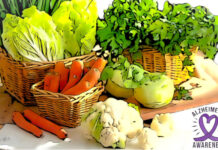Indigenous blood, Amazon fire, spraying pesticides. Large-scale fraud and lethal toxins when needed. (1) It is the secret recipe of mass catering, and some industrial supply chains, even in Italy. Data to follow. #Buycott!
Brazilian meats, imports into Italy
Italy was, in 2015, Europe’s largest importer of Brazilian beef. Over 1/3 of imported frozen meat. To which is added that coming from Argentina, Uruguay and Paraguay. Italy’s total beef imports reached 382,000 tons in 2017. (2)
This fact continues to escape the attention of the mainstream media, and it is also silenced by national policy. As well as by Coldiretti itself, which maneuvers the press like the Department of Agriculture, for reasons that are really hard to understand. Except to speculate on the existence of a tacit agreement on sealed silence regarding imports from South America.
Deforestation Made in Italy, the sectors involved
In fact, ‘ Made in Italy deforestation‘ – as Francesco De Augustinis has amply demonstrated, in the documentary of the same name – touches several economic sectors, in the Bel Paese:
– meats, subjected to the unwitting purchase of Italian consumers. ‘Meat preparations’ and ‘meat products’ are indeed not subject to mandatory origin labeling of raw materials. The origin of meat in restaurants, after all, remains a mirage,
– GMO soybean. Again, consumAtors are being kept in the dark, as the use of GMO feed in dairy cow or beef animal breeding is not subject to any label claims. And the production chain-still unable to value the virtuous choices of using non-GMO, possibly local, feed-opts to save money (now about 50€/ton). This imports 2.5 million tons/year of soybeans from areas deforested and invaded by glyphosate, to instead export more than half of the non-GMO soybeans processed in Italy (1 mln tons),
– wood and leather. Italian industry ranks first in Europe for imports of timber and hides from Brazil. For furniture and decor, clothing and accessories. However, consumers still do not pay attention to the environmental and social costs of their choices on fashion and furniture. Italian companies in the relevant sectors thus continue to purchase goods made by destroying the planet’s largest primary forest.
Brazilian meat in Italy, the bill for the planet
Cattle breeding in Brazil is worth more than 200 million head of cattle. Which are raised on more than 45 million hectares of forests that have been devastated, in recent decades, precisely because of the conversion to grazing and monoculture of GMO soybeans. As well as palm oil, in northern areas. As noted by, among others, the Yale School of Forestry (Connecticut, USA). (3)
The Amazon represents the largest primary forest on the planet, 6-800 million hectares. It is home to 10 percent of the earth’s biodiversity and 15 percent of its fresh water. As well as millions of peasants and half a million indigenous people, whose livelihood still relies on connection with nature and yet are driven out of their ancestral domains.
Murder and violence against populations. As well as chemical weapons, the pesticides produced by the Big 4, used to poison water and soils so as to prevent their use by the original inhabitants. With the approval of the governments of ‘advanced’ countries.
Europe’s political representatives , we remember well, were indeed quick to shake hands with Jair Bolsonaro, a.k.a. ‘Captain Chainsaw’ or ‘the Black’. To conclude the most important treaty of all time, the one precisely signed between the EU and the Mercosur countries. Except to feign dissatisfaction, in tweets, when the fires in the Amazon were lapped up by the international spotlight.
Brazilian meats, the frauds of the giants
Brazilian and South American meats also present food safety problems. Problems that are often serious, relating both to the toxicity of pathogenic bacteria and the unreliability of official public controls and product traceability data. Culminating in 2017 with the ‘Carne Fraca‘ (literally, rotten meat) scandal.
Criminal fraud by the world’s top beef and poultry producers, Brazilian groups JBS and BRF, has caused dangerous food recalls on 5 continents. Which were exported with fake veterinary certificates, thanks to a network of corruption and malfeasance that from local health administrations and regional governments reached the top of the federal government, up to the closest collaborators and ministers of Michel Temer (Jair Bolsonaro’s predecessor).
South American meats in Italy, other food safety issues
The European Rapid Alert on Food and Feed (RASFF) system then offers additional data on meat from Brazil and South America imported into the EU. Pietro Massimiliano Bianco – head of the Scientific Committee of European Consumers, the first consumer association to join our Buycott campaign – analyzed the notifications entered into the RASFF during the period 2015-2018. (4)
Official public controls in Italy are always very effective. Our Ministry of Health-in addition to having handled the Carne Fraca case with unique timing-has notified Brussels of 32 beef alerts, in 2015-2018. 20 cases up from Brazil, 4 from Uruguay and 3 from Argentina.
A serious food safety risk on Brazilian beef and beef from adjacent countries is Shiga toxin. And thus from STEC,
Shiga-toxin producing Escherichia coli
, one of the most dangerous foodborne pathogenic bacteria. On South American turkeys, however, the single, ubiquitous Salmonella was reported.
Buycott! American meats, GMO soybeans and palm oil
The #Buycott petition-which we urge everyone to sign and publicize by following the link https://www.egalite.org/buycott-petizione/-aspires to raise awareness of the impact of delinquent, more than even unsustainable supply chains. American meats, GMO soy, palm oil, off our plates! #NotInOurName!
Dario Dongo
Notes
(1) Pietro Massimiliano Bianco (2019). Import and safety of Italian meat based on 2015-2018 RASFF data. European Consumers, at http://www.europeanconsumers.it/wp-content/uploads/2019/02/Importazione-e-sicurezza-delle-carni-italiani-sulla-base-dei-dati-RASFF.pdf
(2) SEE http://www.assocarni.it/archivio3_comunicati-ed-eventi_0_318_173.html, http://www.ismeamercati.it/flex/cm/pages/ServeBLOB.php/L/IT/IDPagina/7625
(3) https://globalforestatlas.yale.edu/amazon/land-use. See also Clifford Krauss. In the Amazon, fires steal breath, but smoke smells of money. New York Times, 2.11.19, https://www.nytimes.com/2019/11/02/world/americas/brazil-amazon-fires-cowboys.html
(4) See footnote 1
Dario Dongo, lawyer and journalist, PhD in international food law, founder of WIISE (FARE - GIFT - Food Times) and Égalité.








